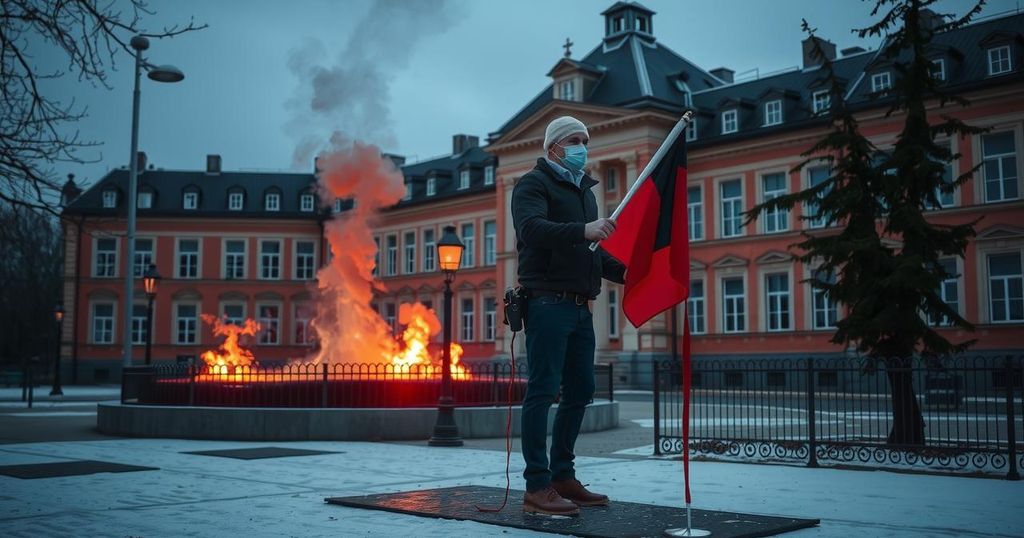Magdeburg Attack Fuels Far-Right Political Capital Ahead of Elections

Following the deadly Magdeburg Christmas market attack, misinformation has proliferated, with far-right voices, including the AfD, utilizing the incident to call for stricter migration policies. The assailant, Talib A.*, has been linked to a history of admiration for the AfD, stirring up significant political controversy ahead of the upcoming federal elections. Political experts predict a shift toward emphasizing migration and security in electoral discourse, overshadowing other aspects of migration.
In the wake of a tragic attack on the Magdeburg Christmas market that resulted in at least five fatalities, panic and misinformation have rapidly emerged. Early speculation incorrectly suggested multiple attackers and links to Syrian refugees, a narrative that has been vehemently spread by far-right politicians and figures like Martin Sellner. The assailant, identified as Talib A.*, a Saudi national, had been residing in Germany since 2006. The Alternative for Germany (AfD) party wasted no time in politicizing the incident, suggesting stricter immigration policies and holding rival parties accountable for the attack.
Political experts, such as Benjamin Höhne from the Technical University in Chemnitz, assert that the incident may further shift public discourse to the right, emphasizing migration as a security threat over other important considerations like labor shortages. As preparations for the upcoming federal elections intensify, the AfD and other right-wing factions are expected to leverage this incident to advance their agendas. Critics have urged the current government, particularly Interior Minister Nancy Faeser, to address perceived security lapses that may have allowed the tragedy to occur.
The rising trend of right-wing narratives within German politics reflects a broader concern about national security and immigration. Historically, parties like the CDU and CSU have capitalized on similar sentiments, particularly during recent regional elections in eastern Germany. Observers predict that the themes of migration and security will dominate political debates leading into the February federal elections, potentially sidelining alternative discussion points about migration’s benefits. Additionally, external influences such as disinformation campaigns may further shape the election landscape, as noted by various analysts.
The article discusses the impact of a violent incident at the Magdeburg Christmas market, which has triggered a surge in misinformation and political opportunism. The event has provoked reactions from various political actors, prominently including the AfD, which seeks to reshape the narrative surrounding migration and security in light of the upcoming federal elections. The involvement of global personalities such as Elon Musk in criticizing the German government also highlights the international dimension of domestic political discourse. This incident marks a critical juncture in German politics, particularly concerning increasing security fears and the role of migration in national policy. The strategic harnessing of public sentiment following such tragedies has historically influenced electoral outcomes, suggesting that the Magdeburg attack may serve to fortify right-wing rhetoric in the forthcoming elections.
The incident at the Magdeburg Christmas market serves as a catalyst for right-wing political factions in Germany, reigniting debates on immigration and national security. As misinformation spreads and political narratives are constructed, the consequences of this tragic event may significantly shape the discourse leading up to the federal elections. The interplay of domestic and foreign political influences underscores the complex landscape in which these discussions unfold as Germany grapples with security concerns in the context of migration.
Original Source: www.dw.com








